Another look at Venice Biennale: Living in interesting times

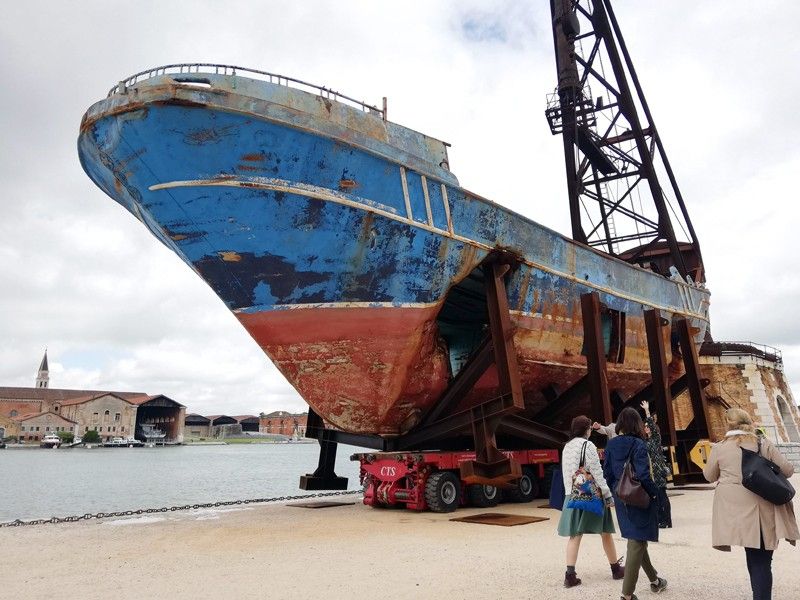
May You Live in Interesting Times” is known more of as a curse than a blessing. Often attributed to Chinese origins, the expression of living in “interesting times” inadvertently refers to living in a time of unrest, transitions, and dissonances. The 2019 Venice Biennale’s main exhibition, themed “May You Live in Interesting Times,” curated by Ralph Rugoff, embraces the current state of the world’s problems with a main exhibition featuring 79 artists all addressing different facets of global issues.
The Venice Biennale is the world’s longest-running biennale, having begun in 1895. The biennale, running once every two years, takes a format similar to a world expo, with pavilions scattered across Venice to represent various countries across the globe. This year held 89 national participations.
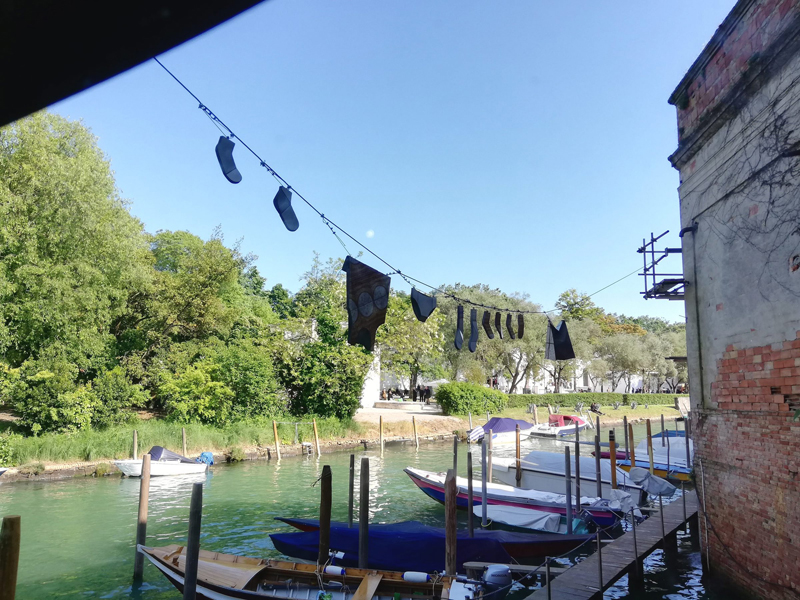
“Second Hand” by Zhanna Kadyrova
Rogoff’s central exhibition proposed a broad way of looking at the issues of the world, with artists’ works ranging from discussing technology and warfare to race. The works Rugoff chose for the exhibition were a testament to the various problems being faced today and brought them into a space to be able to dialogue with each other. While not necessarily divided by theme or issue, the exhibition was able to encourage a more holistic and flowing way of understanding the current times we live in.
“May You Live in Interesting Times” took a lean towards an understanding of technology and programming, featuring works that used artificial intelligence (AI) and other advanced developments. Hito Steryl’s work, “Leonardo’s Submarine,” was a three-channel video generated through AI video processing, referencing Leonardo Da Vinci’s plans of a submarine to defeat the Ottoman Empire, as well as the rebranding of a major arms enterprise to using “Leonardo” in their company name. Sun Yuan and Peng Yu’s “Can’t Help Myself” used animatronics and programming to “teach” their robot human-like actions, like scratching an itch.
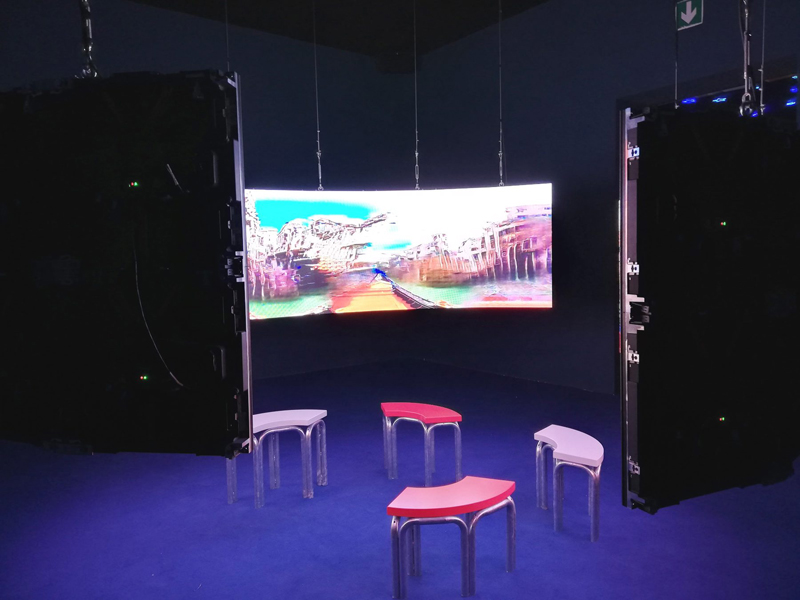
“Leonardo’s Submarine” by Hito Steryl
The exhibition also sought to understand history before modern technology and its implications to today, with works like “Second Hand” by Zhanna Kadyrova, which reused ceramic tiles from a Venetian hotel to create clothes which hung on a clothesline, a sight very typical to Venice. Another work, “Black Serpentine” by Jimmie Durham, traces the history of a block of serpentine rock, from when it was gathered in India to its current location in Venice.
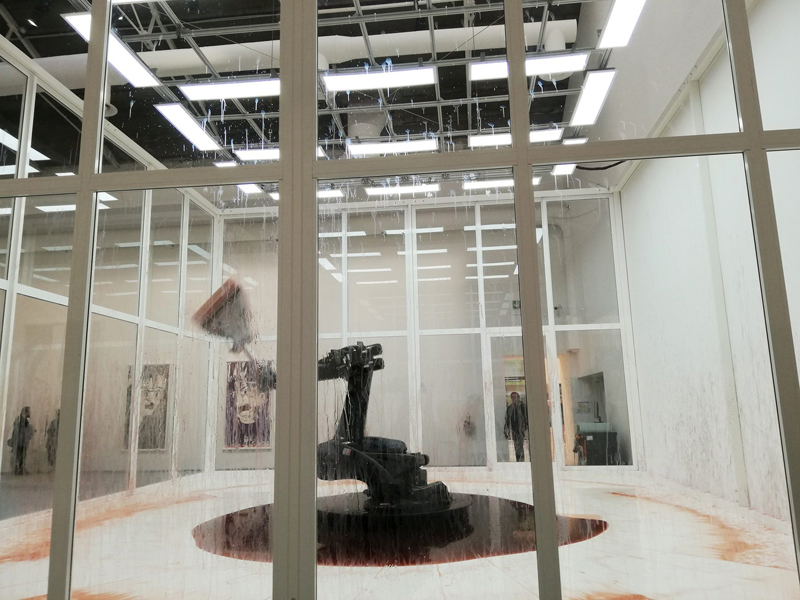
“Can’t Help Myself” by Sun Yuan and Peng Yu
Some works on display were overtly political, such as “The White Album” by Arthur Jafa, which stitched together videos depicting both tenderness towards and violence against African Americans. Shilpa Gupta’s “For in your tongue, I cannot fit,” on the other hand, was a sound installation which put focus on censorship by reciting works by 100 poets who have been imprisoned for their work or political leanings.
While the strength of “May You Live in Interesting Times” is its breadth and flexibility to understand current affairs from a wide perspective, it seemed to have lacked the conviction to settle on a direct political stance. With the magnitude of the exhibition, it may be a difficult task to truly delve deep into pertinent issues, but it is also in this way that issues can easily be trivialized and relegated to becoming artworks of easy consumption, banking on cheap shock and tricks to scandalize the audience, and treating victims of issues as mere means to an artistic end.
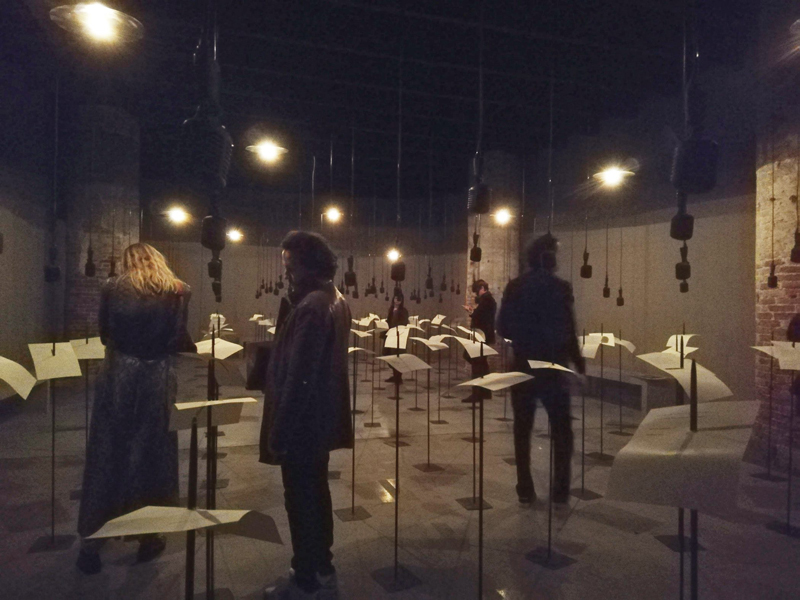
“For in your tongue, I cannot fit” by Shilpa Gupta
One of the works on display in the Arsenale was “Barca Nostra (Our Ship)” by Christoph Büchel. This work displayed the actual refugee boat that capsized and left 800 refugees dead on its way to Italy in 2015. The massive rusting ship was meant to be a reminder of the tragedy but left many visitors feeling disappointed by a distasteful commodification of global tragedy, only meant to spark an automatic reaction. “May You Live in Interesting Times” allowed for an open-ended discussion on the turbulent times we live in, yet it is in this vagueness that it becomes easy to revert into caricatures and scratching the surface on unjust situations in the guise of “raising awareness,” without truly understanding the depth and nuance of the issues and those who live through them.
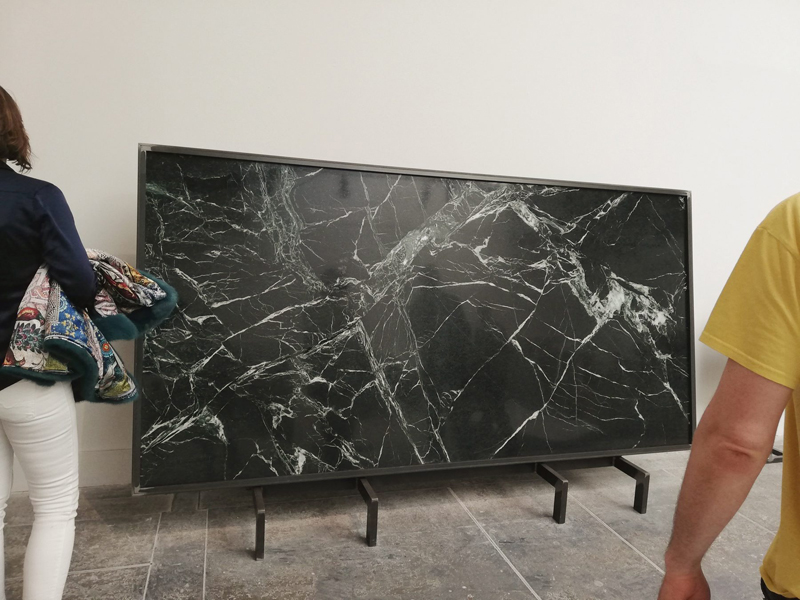
“Black Serpentine” by Jimmie Durham
* * *
Special thanks to the Embassy of Italy in the Philippines, the Philippine-Italian Association, Rustan’s, and Pintô International.



















